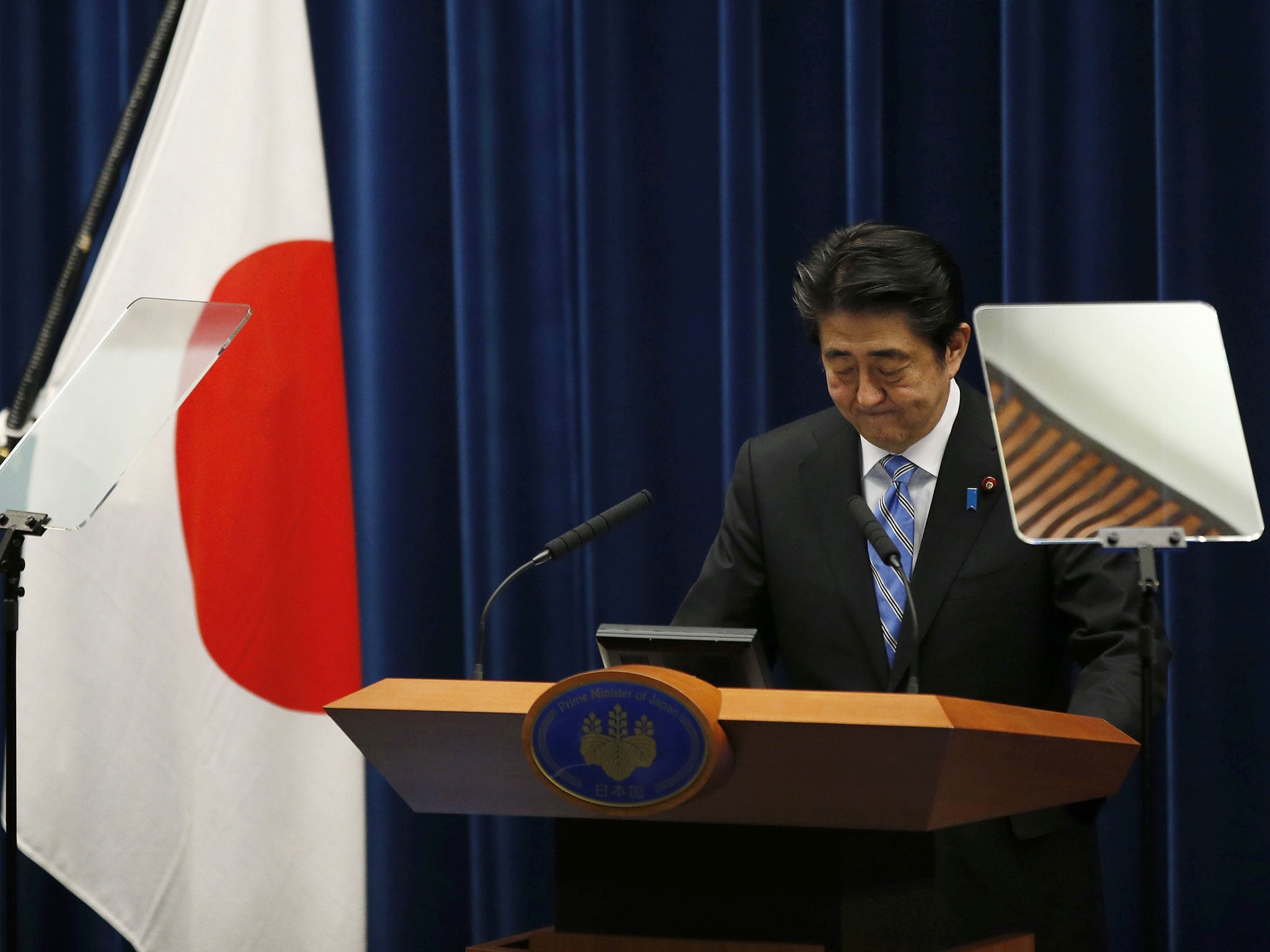Japanese PM Shinzo Abe calls snap election and dissolves parliament
An unpopular sales tax increase has also been postponed as the country scrambles to repair its economy

Your support helps us to tell the story
From reproductive rights to climate change to Big Tech, The Independent is on the ground when the story is developing. Whether it's investigating the financials of Elon Musk's pro-Trump PAC or producing our latest documentary, 'The A Word', which shines a light on the American women fighting for reproductive rights, we know how important it is to parse out the facts from the messaging.
At such a critical moment in US history, we need reporters on the ground. Your donation allows us to keep sending journalists to speak to both sides of the story.
The Independent is trusted by Americans across the entire political spectrum. And unlike many other quality news outlets, we choose not to lock Americans out of our reporting and analysis with paywalls. We believe quality journalism should be available to everyone, paid for by those who can afford it.
Your support makes all the difference.The Japanese Prime Minister Shinzo Abe has announced that he is dissolving parliament and calling a snap general election, giving in to pressure following the news that the world’s third-largest economy has fallen into recession.
Mr Abe also declared that a controversial increase in sales tax planned for next year will be postponed until 2017, as the Japanese government does all it can to get consumers spending again.
The news is an admittance of defeat for Mr Abe’s high-spending, high-taxing strategy designed to stimulate the Japanese economy back into growth.
Instead, he has determined that the figures since the last tax increase in April show the country is too weak to take any more.
Mr Abe said parliament will be dissolved on Friday, with an election scheduled for mid-December.
Fresh elections will be see Mr Abe seek a renewed public mandate for his all-or-nothing economic strategy. While it might seem bizarre to call for a vote following such bad news, the ruling Liberal Democrats have a solid majority and, with opposition parties in weak positions, it is one Mr Abe will expect to win.
When he was elected two years ago, Mr Abe declared "Japan is Back" - but that recession-busting optimism has long since faded.
Data released yesterday showed that the country's GDP unexpectedly shrank for the third quarter of 2014 by 1.6 per cent year-on-year. That put the country officially back into recession, and was described by Mr Abe's close adviser Professor Koichi Hamada as a "body blow".
By dissolving parliament for an election, Mr Abe can clear the slate and once again reshuffle his cabinet, said Michael Cucek, a Tokyo-based analyst and fellow at Temple University Japan. He described the sales tax hike and Abe's policy of lavish fiscal and monetary easing as "mutually contradictory economic programs."
Mr Abe is gambling that his decision will not undermine confidence in Japan's ability to finance its public debt - standing at more than twice the size of the economy.
At some point, Japan will have to raise taxes to cover its growing healthcare costs as an aging society.
"The Japanese government is doing a kind of Ponzi game," Hamada said. "Usually a Ponzi scheme doesn't work in the private economy, but the government always has the next generation of taxpayers to rely on," he said.
Additional reporting by AP
Join our commenting forum
Join thought-provoking conversations, follow other Independent readers and see their replies
Comments